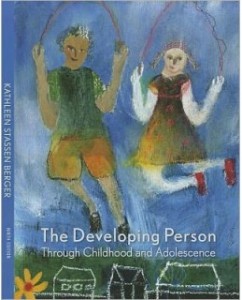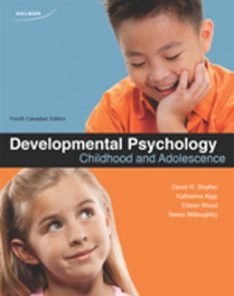Test Bank for The Developing Person through Childhood and Adolescence, 9th Edition: Kathleen Berger
$35.00 Original price was: $35.00.$26.50Current price is: $26.50.
Test Bank for The Developing Person through Childhood and Adolescence, 9th Edition: Kathleen Berger
This is completed downloadable of Test Bank for The Developing Person through Childhood and Adolescence, 9th Edition by Kathleen Berger.

Instant download Test Bank for The Developing Person through Childhood and Adolescence, 9th Edition by Kathleen Berger pdf docx epub after payment.
Product Details:
ISBN-10 : 1429243511
ISBN-13 : 978-1429243513
Author: Kathleen Berger
Keep this book to understand the development of children and adolescence Investigate childhood and adolescent development with The Developing Person Through Childhood and Adolescence. Compelling stories connect classic and current research and the lives of real people from a variety of cultures to the field’s core theories and concepts, giving readers a more complete picture of this area of study.
The Developing Person through Childhood and Adolescence
The Developing Person through Childhood and Adolescence Kathleen Berger
The Developing Person through Childhood and Adolescence Kathleen Berger 9th
The Developing Person through Childhood and Adolescence Kathleen Berger 9th Test Bank
Test Bank for The Developing Person through Childhood and Adolescence, 9th Edition: Kathleen Berger Download
Table Of Content:
- About this Book
- Cover Page
- Halftitle Page
- LaunchPad
- Title Page
- Copyright Page
- About the Author
- Brief Contents
- Contents
- Preface
- Part I The Beginnings
- Chapter 1 The Science of Development
- Understanding How and Why
- The Scientific Method
- The Nature–Nurture Controversy
- Childhood and Adulthood
- Development Is Multidirectional
- Development Is Multicontextual
- Development Is Multicultural
- Development Is Multidisciplinary
- Development Is Plastic
- Using the Scientific Method
- Observation
- The Experiment
- The Survey
- Meta-Analysis
- Studying Development over the Life Span
- Cautions and Challenges from Science
- Correlation and Causation
- Quantity and Quality
- Ethics
- End of Chapter
- Summary
- Key Terms
- Applications
- Especially For Answers
- Observation Quiz Answers
- Chapter 2 Theories
- What Theories Do
- Theory and Practice
- Facts and Possibilities
- Grand Theories
- Psychoanalytic Theory: Freud and Erikson
- Behaviorism: Conditioning and Learning
- Cognitive Theory: Piaget and Information Processing
- Newer Theories
- Sociocultural Theory: Vygotsky and Beyond
- Evolutionary Theory
- What Theories Contribute
- End of Chapter
- Summary
- Key Terms
- Applications
- Especially For Answers
- Observation Quiz Answers
- Chapter 3 The New Genetics
- The Genetic Code
- 46 to 21,000 to 3 Billion
- Same and Different
- Matching Genes and Chromosomes
- Sex Chromosomes
- New Cells, New People
- Cells and Identity
- Twins and More
- From Genotype to Phenotype
- Many Factors
- Gene–Gene Interactions
- Nature and Nurture
- Alcohol Use Disorder
- Nearsightedness
- Schizophrenia
- Practical Applications
- Chromosomal and Genetic Problems
- Not Exactly 46
- Gene Disorders
- Genetic Counseling and Testing
- End of Chapter
- Summary
- Key Terms
- Applications
- Especially For Answers
- Observation Quiz Answers
- Chapter 4 Prenatal Development and Birth
- Prenatal Development
- Germinal: The First 14 Days
- Embryo: From the Third Week Through the Eighth Week
- Fetus: From the Ninth Week Until Birth
- Birth
- Variations in How and Where
- The Newborn’s First Minutes
- Medical Assistance at Birth
- Problems and Solutions
- Risk Analysis
- Harmful Substances
- Prenatal Diagnosis
- Safe During Pregnancy?
- Low Birthweight: Causes and Consequences
- The New Family
- The Newborn
- New Mothers
- New Fathers
- Family Bonding
- End of Chapter
- Summary
- Key Terms
- Applications
- Especially For Answers
- Observation Quiz Answers
- Part II The First Two Years
- Chapter 5 The First Two Years: Biosocial Development
- Body Changes
- Body Size
- Sleep
- Brain Development
- Harming the Infant Body and Brain
- Perceiving and Moving
- The Senses
- Motor Skills
- Cultural Variations
- Surviving in Good Health
- Better Days Ahead
- Immunization
- Nutrition
- End of Chapter
- Summary
- Key Terms
- Applications
- Especially For Answers
- Observation Quiz Answers
- Chapter 6 The First Two Years: Cognitive Development
- The Eager Mind
- Listening to Learn
- Looking to Learn
- Core Knowledge
- Theories of the Infant Mind
- Infant Memory
- Piaget’s Sensorimotor Intelligence
- Stages One and Two: Primary Circular Reactions
- Stages Three and Four: Secondary Circular Reactions
- Stages Five and Six: Tertiary Circular Reactions
- Language: What Develops in the First Two Years?
- The Universal Sequence
- Theories of Language Learning
- End of Chapter
- Summary
- Key Terms
- Applications
- Especially For Answers
- Observation Quiz Answers
- Chapter 7 The First Two Years: Psychosocial Development
- Emotional Development
- Early Emotions
- Toddlers’ Emotions
- Temperament and Personality
- The Biology of Temperament
- Dimensions of Temperament
- Brain Variations
- The Development of Social Bonds
- Synchrony
- Attachment
- Social Referencing
- Fathers as Social Partners
- Theories of Infant Psychosocial Development
- Psychoanalytic Theory
- Behaviorism
- Cognitive Theory
- Evolutionary Theory
- Who Should Care for Babies?
- In the United States
- Other Nations
- Fathers, Grandmothers, and Sisters
- Conclusions from the Science
- End of Chapter
- Summary
- Key Terms
- Applications
- Especially For Answers
- Observation Quiz Answers
- Part III Early Childhood
- Chapter 8 Early Childhood: Biosocial Development
- Body Changes
- Growth Patterns
- Nutrition
- Brain Growth
- Myelination
- Maturation of the Prefrontal Cortex
- Inhibition and Flexibility
- Advancing Motor Skills
- Harm to Children
- Avoidable Injury
- Prevention
- Child Maltreatment
- Preventing Harm
- End of Chapter
- Summary
- Key Terms
- Applications
- Especially For Answers
- Observation Quiz Answers
- Chapter 9 Early Childhood: Cognitive Development
- Thinking During Early Childhood
- Executive Function
- Piaget: Preoperational Thought
- Vygotsky: Social Learning
- Children’s Theories
- Language Learning
- The Time for Language Learning
- The Vocabulary Explosion
- Acquiring Grammar
- Learning Two Languages
- Early-Childhood Schooling
- Homes and Schools
- Child-Centered Programs
- Teacher-Directed Programs
- Intervention Programs
- Long-Term Gains from Intensive Programs
- End of Chapter
- Summary
- Key Terms
- Applications
- Especially For Answers
- Observation Quiz Answers
- Chapter 10 Early Childhood: Psychosocial Development
- Emotional Development
- Emotional Regulation
- Initiative Versus Guilt
- Motivation
- Play
- The Historical Context
- Social Play
- Challenges for Caregivers
- Styles of Caregiving
- Discipline
- Becoming Boys and Girls
- What Is Best?
- Teaching Right and Wrong
- End of Chapter
- Summary
- Key Terms
- Applications
- Especially For Answers
- Observation Quiz Answer
- Part IV Middle Childhood
- Chapter 11 Middle Childhood: Biosocial Development
- A Healthy Time
- Statistics on Health
- Health Habits
- Physical Activity
- Motor Skills and School
- Health Problems in Middle Childhood
- Brain Development
- Brains and Motion
- Measuring the Mind
- Children with Special Brains and Bodies
- Many Causes, Many Symptoms
- Specific Learning Disorders
- Special Education
- End of Chapter
- Summary
- Key Terms
- Applications
- Especially For Answers
- Observation Quiz Answers
- Chapter 12 Middle Childhood: Cognitive Development
- Thinking
- Piaget on Middle Childhood
- Vygotsky and Culture
- Information Processing
- Language
- Vocabulary
- Speaking Two Languages
- Poverty and Language
- Teaching and Learning
- The Curriculum
- International Testing
- Schooling in the United States
- End of Chapter
- Summary
- Key Terms
- Applications
- Especially For Answers
- Observation Quiz Answer
- Chapter 13 Middle Childhood: Psychosocial Development
- The Nature of the Child
- Industry and Inferiority
- Parental Reactions
- Self-Concept
- Resilience and Stress
- Families During Middle Childhood
- Shared and Nonshared Environments
- Function and Structure
- Various Family Structures
- Connecting Family Structure and Function
- Family Trouble
- The Peer Group
- The Culture of Children
- Friendships
- Popular and Unpopular Children
- Bullying
- Children’s Morality
- End of Chapter
- Summary
- Key Terms
- Applications
- Especially For Answers
- Observation Quiz Answers
- Part V Adolescence
- Chapter 14 Adolescence: Biosocial Development
- Puberty Begins
- Sequence
- Unseen Beginnings
- Brain Growth
- When Will Puberty Begin?
- Too Early, Too Late
- Growth and Nutrition
- Growing Bigger and Stronger
- Diet Deficiencies
- Eating Disorders
- Sexual Maturation
- Sexual Characteristics
- Sexual Activity
- Sexual Problems in Adolescence
- End of Chapter
- Summary
- Key Terms
- Applications
- Especially For Answers
- Observation Quiz Answers
- Chapter 15 Adolescence: Cognitive Development
- Logic and Self
- Egocentrism
- Formal Operational Thought
- Two Modes of Thinking
- Dual Processing
- Intuitive and Analytic Processing
- Secondary Education
- Definitions and Facts
- Middle School
- High School
- End of Chapter
- Summary
- Key Terms
- Applications
- Especially For Answers
- Observation Quiz Answers
- Chapter 16 Adolescence: Psychosocial Development
- Identity
- Not Yet Achieved
- Arenas of Identity Formation
- Vocational Identity
- Close Relationships
- Family
- Peer Power
- Learning About Sex
- Technology and Human Relationships
- Sadness and Anger
- Depression
- Delinquency and Defiance
- Drug Use and Abuse
- Age Trends
- Harm from Drugs
- Preventing Drug Abuse: What Works?
- End of Chapter
- Summary
- Key Terms
- Applications
- Especially For Answers
- Observation Quiz Answers
- Epilogue: Emerging Adulthood
- Biological Universals
- Health Habits
- Sex and Pregnancy
- Risks and Benefits
- Cognitive Development
- Postformal Thought
- College and Cognition
- Psychosocial Development
- Personality in Emerging Adulthood
- Intimacy Versus Isolation
- Concluding Hopes
- End of Chapter
- Summary
- Key Terms
- Applications
- Especially For Answers
- Observation Quiz Answers
- Appendix More About Research Methods
- Make It Personal
- Read the Research
- Professional Journals and Books
- The Internet
- Additional Terms and Concepts
- Who Participates?
- Research Design
- Reporting Results
- Glossary
- References
- Name Index
- Subject Index
- Back Cover
People also search:
The Developing Person through Childhood and Adolescence
The Developing Person through Childhood and Adolescence Kathleen Berger
The Developing Person through Childhood and Adolescence Kathleen Berger 9th
The Developing Person through Childhood and Adolescence Kathleen Berger 9th Test Bank
Test Bank for The Developing Person through Childhood and Adolescence, 9th Edition: Kathleen Berger Download
You may also like…
Test Bank
Test Bank for Developmental Psychology Childhood and Adolescence, 4th Canadian Edition: Shaffer












